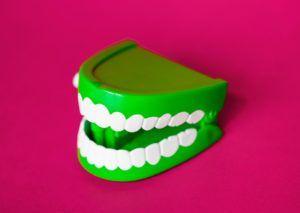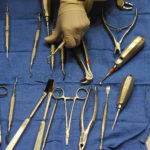Table of Contents

Source: unsplash.com
Oral health and general health are closely related. Therefore ensuring a perfect oral health not only ensures perfect smile but perfection in the general health as well. Often parents ignore oral health in children as they feel that child’s first teeth fall off. But for healthy adult teeth, you need to take proper care of the teeth at a young age.
In most of the kids, the first tooth erupts at 4 to 6 months of age. Oral hygiene should be taken care of starting at that time.You can get oral health problems when there is a medical problem in the body or vice versa.
How does oral hygiene affect general health?
Poor oral health can affect can affect an infant’s general health in the following ways:
- Improper growth and development: a child with an oral disease might have difficulty in chewing food. This leads to low food intake or may take the modified diet. This leads to low nutrient intake which may affect the growth and development.
- Difficulty in sleeping: pain in the tooth is very annoying and will prevent the child from sleeping.
- Reduced self-esteem: a child with poor oral hygiene will be reluctant to interact with other people because of the embarrassment of the appearance of the teeth.
- Missed opportunities at school: due to poor oral hygiene the child may become more prone to suffer from oral diseases, which may lead to frequent absence from the school and related activities.
How problems in general health affect oral health?
Medical conditions or medical intervention can directly or indirectly affect the oral health.
- Anti-anxiety medications, antihistamines, decongestants, diuretics, and narcotics can alter the quantity and quality of saliva.
- Supplements such as iron and tetracycline medications can cause staining of teeth.
- Anti-inflammatory medications can lead to dry mouth and can also make you susceptible to fungal infections.
- Gastrointestinal disorders such as acid reflux episodes can lead to damage to the enamel and dentin.
Tooth decay in young children
Tooth decay is the most common disease of the oral cavity affecting children. It leads to wearing out of the tooth enamel and development of dental caries.

Source: unsplash.com
Symptoms of tooth decay
Tooth decay symptoms vary from child to child. Following is a common way a tooth develops decay.
- White spots appear on the teeth which mean that the enamel has started wearing out. The teeth might become sensitive.
- A cavity develops in the tooth and maybe light brown in colour.
- Later on, the cavity deepens and may change the colour to black or a dark brown.
- The child experiences pain around the decayed tooth.
- The tooth might become sensitive to sweet, hot, or cold food.
How to diagnose tooth decay
Tooth decay is diagnosed by a dentist who examines the oral cavity and also gets an X-ray done of the decayed tooth.
Treatment
Once the tooth decay develops a child might need treatment from a dental expert.
Filling may be required for small cavities and a crown may be needed if the damage is deep. This might prevent the infection from spreading.
If the tooth is decayed extensively then there might be a need to extract it, as it might cause damage to other teeth or the adult teeth. The adult teeth might suffer from pitting or staining if the primary teeth suffer from severe decay.
It is therefore important to get alert if the child complains of tooth sensitivity. Early the problem is addressed easier will be the treatment.
How to prevent tooth decay
As parents are the role models for children, a proper knowledge of oral hygiene starts at home. Parents should talk to the dentists about how to take care of their children teeth. If they know well, better will they impart to their kids.
Following are the common recommendation which can help prevent tooth decay,
- Start brushing the child s teeth as soon as one appears. Clean teeth, gums, and tongue twice in a day with a fluoride toothpaste. For babies, a soft cloth or baby brush can be used.
- If your baby is in a habit of taking bottle while sleeping avoid giving formula or juices as they are loaded with sugar and can lead to tooth decay. Water can be given instead.
- Educate the child about the importance of routine dental care i.e. brushing teeth twice daily and flossing once in a day.
- A routine visit to the dentist can help in early detection of development of caries and so the treatment.
- Avoid sugary and starchy food, as these food increase the level of acid-eroding plaque in the mouth. Try replacing these items with healthier options such as fruits and vegetables.
- Drink plenty of water every day as it helps in flushing the bacteria from the mouth and also preventing acid from building up in the mouth. If the water is fluoridated, it adds another layer of protection as fluoride is a known cavity fighter.
- Add cheese and nuts to diet because they are rich in acid fighters and also rich in minerals good for teeth.
It’s important to help children develop healthy oral habits, from a young age. It helps in setting the stage for a healthy oral habit throughout the life. All this can help in preventing various problems which develop because of poor oral health including gum diseases, cavities, and decay.
Authors Bio – Mitravinda is a Nutritionist at DietChart with a doctoral degree in Food Science and Nutrition. She is a teacher, researcher and an author. Her passion for the subject prompted her to start writing blogs on various nutrition-related topics such as diet chart for weight loss, diet chart for weight loss in 7 days, protein rich food for vegetarians etc. Through her blogs, she wishes to help people gain a deeper understanding about the relationship between food, nutrition, lifestyle and health.







